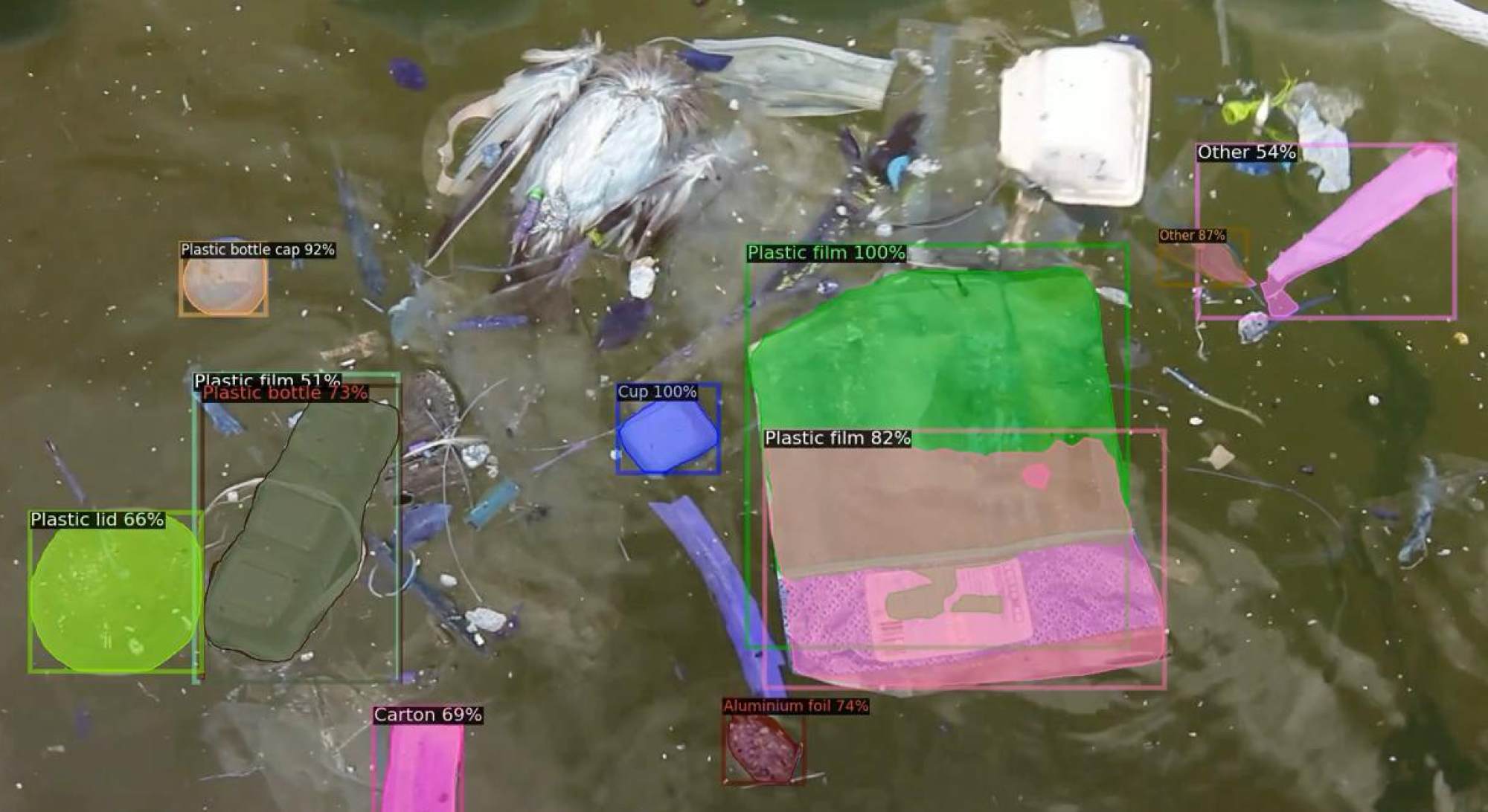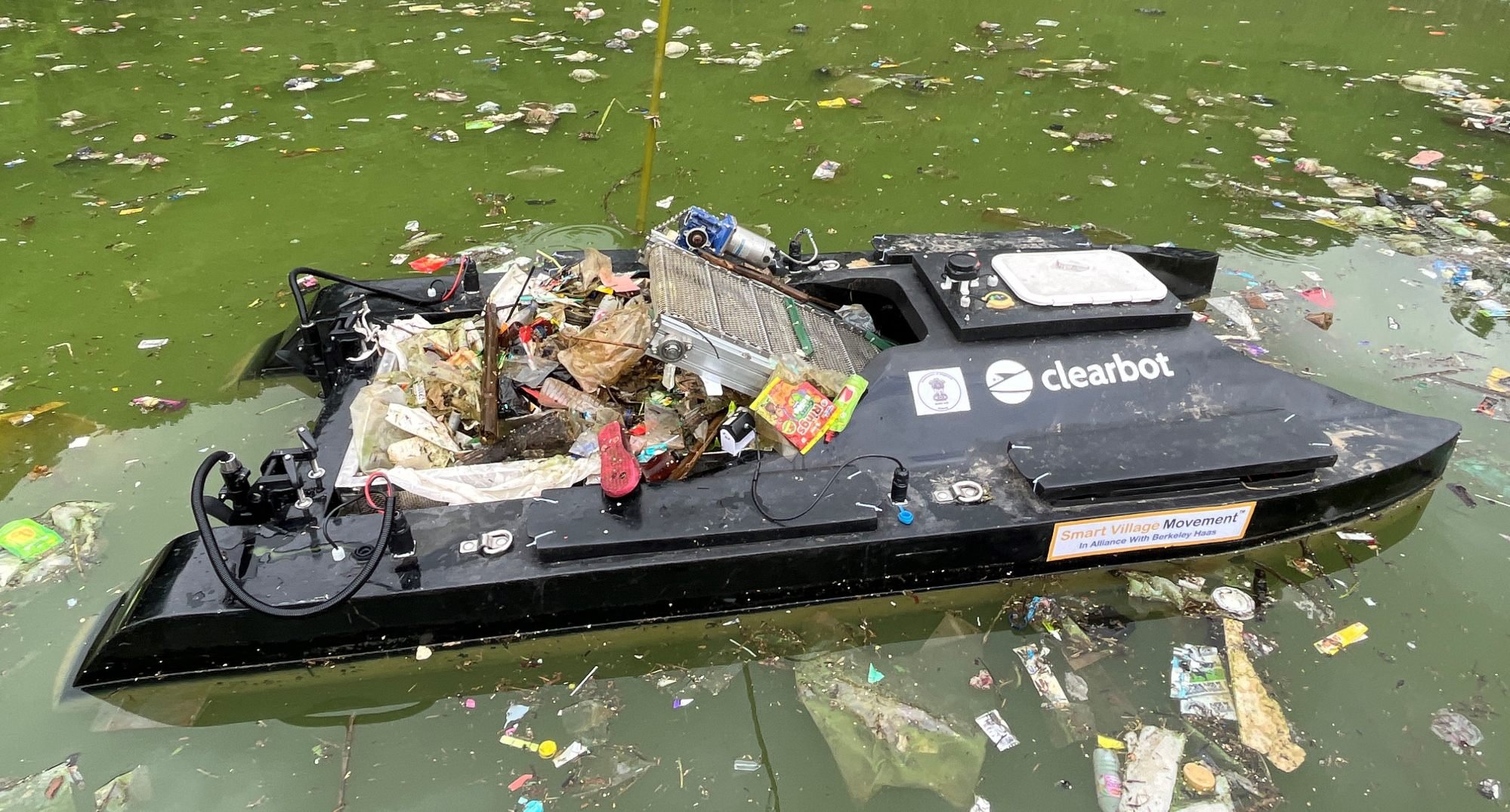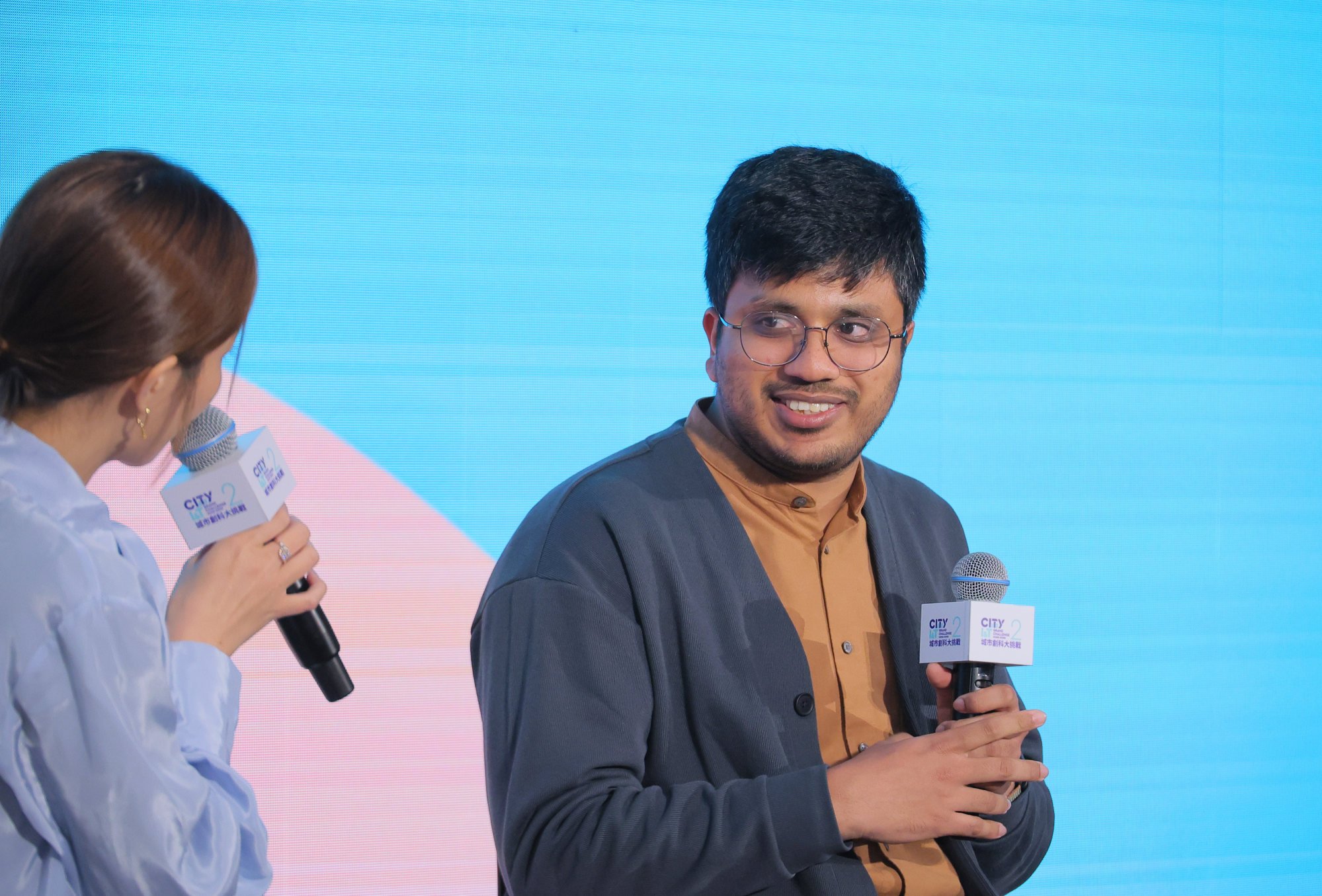From a humble student idea to a fully fledged start-up, a project that began as a way of helping surfers remove plastic pollution from the ocean is scaling up its award-winning design with ambitions to eventually revolutionise marine industry research using artificial intelligence (AI).
Clearbot, which manufactures autonomous marine robots, has developed an all-electric fleet of 12 self-driving bots. These are able to each clear 250-300kg (550-660lbs) of ocean waste at a time. They can also move and deliver goods on water, as well as perform marine inspections – all with no emissions, as they rely on solar power. In addition, Clearbot has developed special modules: one can be deployed to clear aquatic plants that block waterways, while another can absorb and collect oil from the water’s surface.
The co-founders of Clearbot, Utkarsh Goel and Sidhant Gupta, established Open Ocean Engineering in 2020 while studying at the University of Hong Kong. It began as a project to help Indonesian surfers gather plastic from the sea, but when they tested the system in places such as Hong Kong and India, they soon realised the problem was greater than they had first imagined. Goel and Gupta knew they had to scale up.

In 2021, Open Ocean Engineering entered the inaugural City I&T Grand Challenge in the Open Group (Environmental Sustainability), and won HK$800,000 (US$100,000) in co-creation funding by the government for prototyping. The company also received support from the Innovation and Technology Commission on training in market research, product design, patent rights, pitching and other essential skills.
“The funding from City I&T Grand Challenge was critical in a unique way,” says Goel, who divides his time between India and Hong Kong. “The funding gave us the opportunity to not just produce a bot; it also helped us do market research. This was around the time when we were trying to understand the different use cases [of our design], and the fund helped us see what different marine services we could do with our bot.
“We got to pilot it with an actual client, and using this funding, we deployed the boat ‘on the ground’,” Goel adds.

Beyond winning funding, the most significant catalyst for Clearbot’s early growth, Goel says, was the guidance the company received to promote the viability of its product in the market. “That support and experience for us, very early in our company’s life, gave us the time to sit back and understand the design and engineering requirements better, where we could think about product design, prototype, manufacturing, and really build something out that goes to a client,” he adds.
Clearbot has been able to increase its team from four to 20, and upgrade its fleet from having just one automated bot to 12 within the last year of growth. The start-up has gone on to partner with multinational tech companies such as Razer and Microsoft, engage in commercial projects with Sino Group and Bupa, and secure investments from the Alibaba Entrepreneur Fund and Gobi Partners Greater Bay Area, which have become springboards for financial support for Clearbot’s growth.
“As the team scales from 20 today to even 50 people, we now have the experience of knowing with whom to do market research and how to approach prototyping for new bots,” Goel says. “It enabled a grand vision where we see these bots going from 10 to a hundred to a thousand.”

Goel hopes the exposure generated by competitions such as the City I&T Grand Challenge will bring sustainability-minded innovations to the fore. “In the beginning, our challenge was that we gave the impression of 23-year-olds who were really passionate about the environment and just doing it for charity,” Goel says. “But I hope we can set an example and show people that you can build innovative start-ups that also have a positive impact on the environment – to have a business that focuses on sustainability, but also makes money at the same time.”